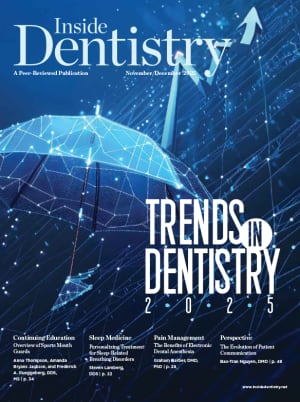The National Dental Association (NDA) has announced its support for the Interstate Dental and Dental Hygiene Licensure Compact (IDDHLC), an initiative developed by the American Association of Dental Boards (AADB) to create an expedited pathway for dentists and dental hygienists to obtain licenses in multiple states.
The NDA House of Delegates voted to support the compact during its July meeting in Kansas City. The decision reflects the organization’s position that hands skill examination is critical to validate competency while allowing portability and maintaining protections for patients.
“The NDA is proud to support the IDDHLC developed by AADB,” said Dr. Cheryle Baptiste Hill, president of the NDA. “This model upholds the principles of patient protection, professional competency and State Dental Board authority while advancing responsible licensure portability to improve access to care nationwide.”
The IDDHLC requires participants to graduate from Commission on Dental Accreditation (CODA)-approved schools and pass the American Board of Dental Examiners (ADEX) licensure examination. These standards are intended to preserve the quality of care while improving access to professionals across jurisdictions.
“The vote of support from the National Dental Association represents a significant milestone for the IDDHL Compact,” said Arthur Chen-Shu Jee, DMD, president of AADB. “The NDA’s support validates our approach to balancing professional mobility with patient safety, and we look forward to working together to improve access to quality dental care across the nation.”
NDA past president and current chair of the legislative committee, Dr. Leslie Grant, said, “There is a fine balance between public protection and license portability. Equally important is that Dental Boards have full and direct jurisdiction over healthcare providers in their specific State of practice. The Interstate Dental and Dental Hygiene Licensure Compact fulfills these requirements.”
The NDA cited several benefits of the compact that align with its goals, including enhanced professional mobility for dentists and dental hygienists; maintenance of high standards of patient safety through uniform competency requirements; improved access to dental care in underserved communities; cost-effective implementation for participating states; and preserved state authority over dental licensing.
The NDA, founded in 1913, represents dentists, dental students, dental hygienists, and dental assistants of African descent in the United States and internationally. Its work focuses on education, advocacy, and addressing health disparities in the dental field.
The AADB, established in 1883, includes state dental boards, specialty boards, and dental educators from across the United States and its territories. The organization promotes standards in dental education, licensure, and regulation.
The compact has already been adopted by Louisiana, with other states making progress in their legislative processes. More information is available at aadbcompact.org.
